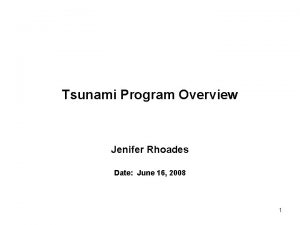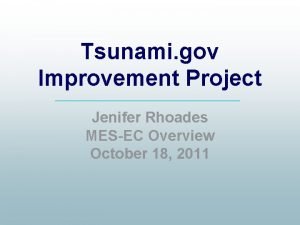Dr Jenifer Chao jenifer chao 2dmu ac uk














![Seralynne Vann’s grant application feedback “[Male colleague’s name] is a world expert in the Seralynne Vann’s grant application feedback “[Male colleague’s name] is a world expert in the](https://slidetodoc.com/presentation_image_h2/28b1ab8a3addac5d9cacfae260829e72/image-15.jpg)














- Slides: 29

Dr Jenifer Chao jenifer. chao 2@dmu. ac. uk 27 November 2019 Women in Research Update

1. Thank you, Georgina Outline for today 2. Quick summary of 9 speakers Conference: 19 September 2019, in London, organised by Inside Government 3. Identify main themes: what are the challenges for women? 4. The solutions offered: helpful for us at DMU?

1. We are not here to conduct DMU-bashing 2. Also not men-bashing Ground rules and resources 3. Make an honest and accurate assessment of individual and collective situations and find solutions 4. Review conference slides on: womeninreserch. co. uk/conference-resources Password: womeninresearch 19


What are the problems? Problems due to the system or the woman? Fix the system or fix the woman?

What are the problems? Is it the system or the woman? Fix the system or fix the woman? System Leaking Pipeline Unconscious gender bias from senior decisionmakers Promotion criteria based on masculine values. A male gendered construction of academic excellence Old Boy Network: mentors and champions; internal politics Woman

System The importance of mobility Increasingly more research and grants require collaborations, which means networking is vital Female researchers tend to travel less They also apply less frequently for visiting professorships, extended research leaves at universities abroad to gain visibility This will affect their opportunities to be leaders in their field Woman

What are the problems? Is it the system or the woman? Fix the system or fix the woman? System Woman Leaking Pipeline Career breaks due to family Too difficult to pick up research trajectory Unconscious gender bias from senior decisionmakers Overly cautious and apply for promotion only after ALL criteria are met. Men promoted based on “potential” and apply ANYWAY, even when unqualified Promotion criteria based on masculine values. A male gendered construction of academic excellence Women are amazing citizens on campuses. This is not recognised in applications and hiring committees Old Boy Network: mentors and champions; internal politics We don’t say “NO” to projects as often Our competence = more work Given crucial tasks that take more time Promotion delayed

Slide from Seralynn

Slide from Seralynn

Slide from Ann

Slide from Ann

Slide from Ann: intersection between gender and race

1. Women are listed as authors in only 30% of British academic research published between 2014 -2017. This is only a small increase from 26% for research published between 2006 -2009. Statistics 2. Women also occupy very few senior academic roles, only 17. 5% in the UK, despite over half of Ph. Ds being awarded to women. Source: Leiden Ranking Team, provided by Women in Research Conference 2019
![Seralynne Vanns grant application feedback Male colleagues name is a world expert in the Seralynne Vann’s grant application feedback “[Male colleague’s name] is a world expert in the](https://slidetodoc.com/presentation_image_h2/28b1ab8a3addac5d9cacfae260829e72/image-15.jpg)
Seralynne Vann’s grant application feedback “[Male colleague’s name] is a world expert in the neural basis of memory, and Vann also has a track record of memory research, however, it is less clear from the application what expertise Vann brings to the project over and above that of [male colleague’s name], especially as the project utilises standard models of spatial memory function such as the radial arm maze. ”

Be aware of: Solutions? Fix the system or the woman? Solutions constructed as fixing up or skilling up individual women, but not men or the wider system

Solutions? Fix the system or the woman? ”On this model, mentoring – especially when proffered in isolation from any critique of the circumstances which might structure women’s continued isolation or marginalization – not only suggests that women are never good enough but that it is the responsibility of other women to address this ‘problem’ … rather than achieving any type of change mentoring can in fact serve to consolidate the status quo. ” Editorial: Lisa Adkins and Maryanne Dever (2016) “It’s not about the women: gender equity in research”, Australian Feminist Studies: 217 -220

1. Need to tackle both fronts Solutions? 2. Honest and accurate look at both individual circumstances, collective experiences of other women, and the system itself 3. Get to work

1. Promote family friendly policies and practices in relation to caregiving obligations; flexibility of part-time work and working hours Solutions? General structural level 2. Provide training on equality and diversity policies, including the recognition of unconscious bias and how it can be addressed 3. Don’t need to preach to the choir; need more male senior managers to get involved 4. Workload allows time to build network

5. Provide support and funding (internal and external) at strategic points of career Solutions? General structural level 6. Co-heads for research centers; share the load 7. Reduce travel requirements/maximise Skype meetings; organise conferences on campus to reduce travel and provide opportunities to chair panels and serve as keynote 8. Module taught by two lecturers = more flexibility for research

9. Regular research sabbaticals Solutions? General structural level 10. Change academic work model and value teamwork. Longer-term positions as a researcher? Not everyone has to be a leader 11. Reward and recognise people/institutions for being better 12. University charged with “doing for good for women”, but it must also do less harm

1. Rethink criteria. Do the criteria for promotion favor men more than women? Solutions for promotion (Invited talks as keynotes, visiting fellowships, visibility, awards, publications at top journals, citations, grants). These are all quantifiable 2. What are the unquantifiable values we tend to embrace and practice at work? How can we elevate these standards?

3. Positions ringfenced for women applicants (for example, extra professorial positions for women in Ireland) Solutions for promotion 4. Recognise the advantages of gender equality in research and academia Do a better job highlighting the positive impact when equality is achieved “DMU will be a better university when there are more female professors and research leaders. How? Because we …. . ”

5. Review a recently successful application 6. Meet with mentor and discuss application Solutions? Promotion/grant tips 7. Rejection? Must ask for feedback and ask for resources to improve (RIA, additional funding, training) 8. Be strategic when taking on responsibilities: should build your own research expertise; make sure it is win-win

1. Identify grant/schemes that are particularly supportive of women Solutions? grant tips 2. Collaborations to get grants; wide consultation about grant proposals; sharing always produces better projects 3. If fail, try again. Tweak and resubmit 4. Visibility and networking: serve on research council working groups, advisory boards, funding scoring boards

Solutions? Behaviors 1. Change what you can control and what you can influence. Don’t waste time on what you can’t change – unless part of a strong coalition 2. Be a good citizen, but just do one thing and not everything 3. Learn to say no but explain properly why you have to say no

Solutions? Behaviors 4. Our challenge is not that we have families and children. Our problem is we don’t have enough time. Become an expert on time management 5. Learn from those who are super efficient and effective 6. Perception that being a professor is the pinnacle of a research career. Aspirational or harmful?

1. Toxic environment? Avoid raising complaints on your own. Do not want to be ostracised Solidarity and generosity 2. Create strategic alliance and collaborations that publicise inequalities collectively; you will need the support 3. Make evidence-based complaints; use evidence and not antidotes 4. Be a champion for someone else; create stepping stones for others. Jenifer: We need champions more than mentors

1. Micro: Identify two personal challenges that are pertinent Discussion 2. Macro: Identify one collective obstacle you’ve noticed 3. What solutions (system or individual) might help? 4. Action for yourself; action to help another
 Massimo ferrario infn
Massimo ferrario infn Mouse marriage
Mouse marriage Jenifer rogers
Jenifer rogers Jenifer junior high school
Jenifer junior high school Jenifer sweet
Jenifer sweet Chao seader method
Chao seader method Paralelos chão
Paralelos chão Shih chao-hwei
Shih chao-hwei Chaohsien
Chaohsien Quy trình sản xuất chao
Quy trình sản xuất chao Para reciclar um motor de potencia eletrica igual a 200w
Para reciclar um motor de potencia eletrica igual a 200w Jackson chao
Jackson chao Batatinha quando nasce espalha a rama pelo chão
Batatinha quando nasce espalha a rama pelo chão Zoë chao sex
Zoë chao sex Cha cha cha con el jaleo del tren letra
Cha cha cha con el jaleo del tren letra


































